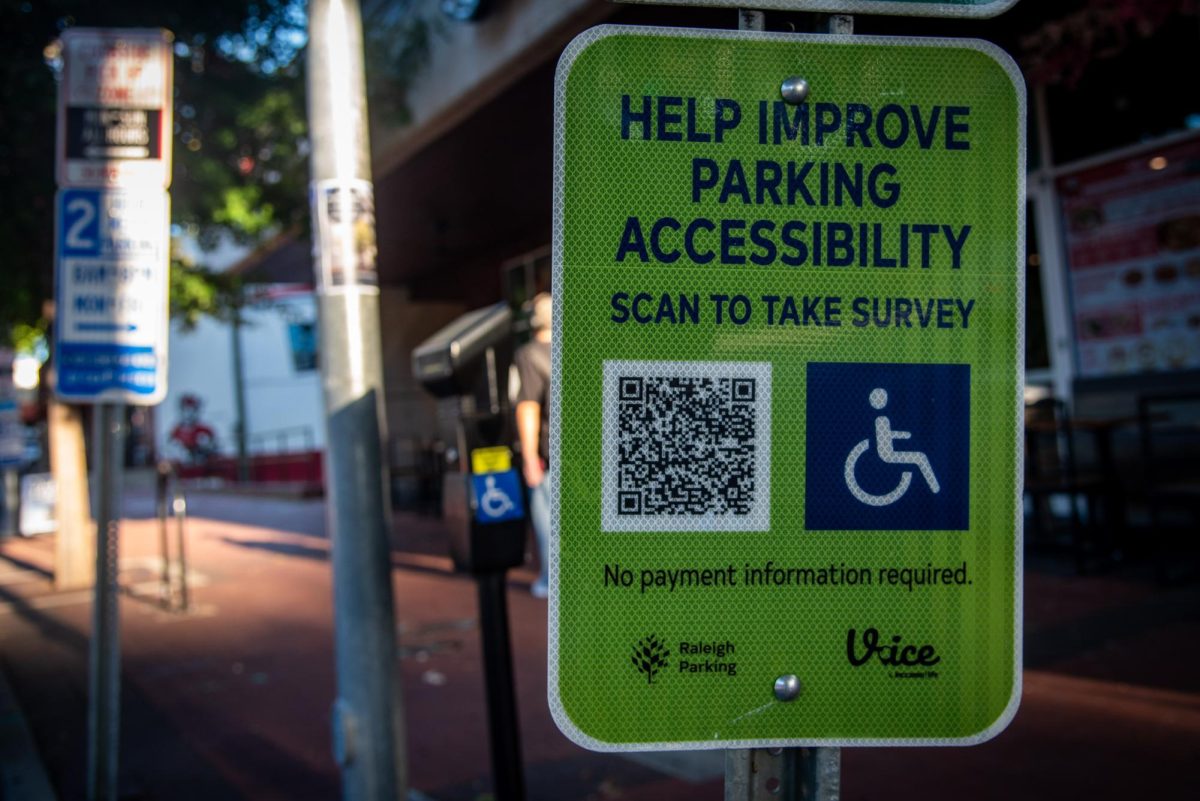A desire for SOUL food
Students lay the ground work for organic community garden on Central Campus
Rachel Port
Staff Writer
A business plan that would strive to unite the campus and reduce NCSU’s ecological foot print was presented to a receptive Board of Trustees on Thursday.
Lauren Morris, a junior in bio-chemistry, and Katie McKnight, a sophomore in environmental technology, are working to launch a community gardening project on campus. They will call it the Students for Organic United Living Garden, or SOUL Garden for short.
“We really want this garden to bring all different aspects of campus together,” said McKnight. “That’s one of our main goals.”
Morris, McKnight and the Wolfpack Environmental Student Association (WESA) developed their community garden proposal for the Think Outside the Brick competition last fall.
McKnight said Jim Ceresnak, study body president, asked them to present their idea to the Board of Trustees.
“They [the trustees] were very supportive,” she said.
McKnight also said a WESA committee has been formed to work on the SOUL Garden project.
According to Morris, food from the SOUL Garden could be sold at the Campus Farmers Market to help keep the garden financially sustainable. McKnight and Morris said they hope to donate surplus food to the local food bank.
“Real food is a right for everybody,” said Morris.
Morris said they wanted to start gardening on Central Campus in front of the David Clark and Fox Labs or between Tucker and Owen dorms in the First Year College village. Later, they would expand to Centennial Campus in front of Hunt Library and the Chancellor’s house.
Bobby Brigman, a sophomore in civil engineering, said he thought it would be a nice way to use the space in front of Fox labs.
Morris said they are in the process of securing funds from the Inter-residence Council, student government, local businesses and the University Sustainability office. Material donations from the facilities and operations department, the crop science department, and the Permaculture class will also aid in starting the SOUL Garden.
Morris and McKnight made it clear that the produce from the garden wouldn’t be certified organic right away.
“Going organic entails not having any chemicals in the ground for three years,” said McKnight.
They also said Dr. Bob Patterson, a professor of crop science, encouraged them to plant corn, beans, squash and peppers together for their garden staples.
According to Patterson, corn, beans and squash together are colloquially called “the three sisters.”
Patterson also said the three sisters and peppers are already well adapted to climates like Raleigh’s and that they provide all the nutrients needed for a well-balanced diet. In addition, the three sisters are a sustainable form of gardening because nitrogen fixated by the beans acts as a natural, organic fertilizer, he said.
“Native Americans relied just about exclusively on these three sisters for their growth, development and well-being,” Patterson said.
According to Patterson, the project is a commendable one.
“What [McKight and Morris] want to do is raise our level of consciousness for sustainability and all the wonderful ways that we as a campus community can be part of that process,” Patterson said.
“It’s a fantastic idea,” Weston Straka, a sophomore studying material science and engineering, said. “[Gardening would be] a good way to get outdoors.”
“I don’t have any sort of a green thumb, but I’d garden,” Ashley Myers, a freshman in business administration, said.
“I’m interested in people having access to a better variety of things to eat,” said Sydney Riggsbee, a sophomore in nutrition. “Better than a couple pieces of fruit from the dining hall.”
According to McKnight and Morris, “The positive possibilities are endless.”




